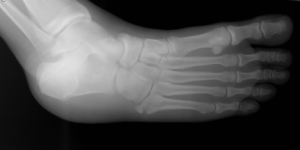Article
Thiazide-induced Hyponatremia Does Not Increase Risk of Fracture
Author(s):
Thiazide-induced hyponatremia is associated with an increased risk of fracture, but this is due to confounding factors, not hyponatremia itself, researchers at the Chinese University of Hong Kong have found.

Thiazide-induced hyponatremia is associated with an increased risk of fracture, but this is due to confounding factors, not hyponatremia itself, researchers at the Chinese University of Hong Kong have found.
The researchers followed up on a cohort of 223 patients who had developed thiazide-induced hyponatremia and 216 patients who rook thiazide diuretics but did not develop hyponatremia. The results found 61 osteoporotic fractures during a mean follow-up period of 82 months.
Using univariate analysis, the researchers found that the hazard ratio for fracture of thiazide-induced hyponatremia was 1.78. However, further multivariate analysis found that old age, low body mass index, and diabetes mellitus were the only independent predictors of osteoporotic fractures and there was no association between thiazide-induced hyponatremia and risk of fracture. The researchers concluded that confounding factors are responsible for the elevated risk of fracture among those with thiazide-induced hyponatremia.
The study has been accepted, peer reviewed, and posted online by Internal Medicine Journal, but not yet published in print.





